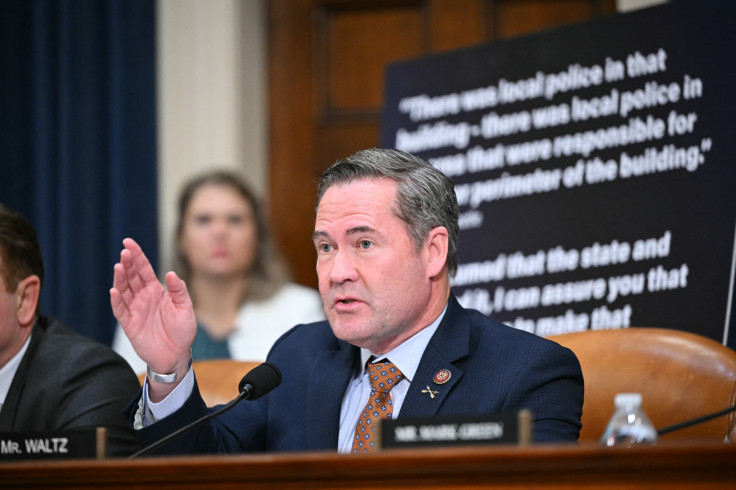
President-elect Donald Trump has been busy starting to fill out the boxes of his upcoming cabinet since his electoral victory. In the span of two days, he has already anointed ex-ICE director Tom Homan as his "Border Czar", Stephen Miller as his White House deputy chief of staff for policy and is expected to confirm Republican Senator Marco Rubio as his Secretary of State, as well as South Dakota Governor Kristi Noem as Secretary of the Department of Homeland Security.
There are several similarities among Trump's new cabinet members. One has to do with their loyalty to the president, a factor that will be crucial, according to those closest to the Republican. Another has to do with their hardline positions on immigration enforcement, an issue that became the biggest tentpole of his campaign.
In that context, Trump has selected Representative Michael Waltz of Florida, a former Army Green Beret who served multiple combat tours in Afghanistan and is known for his aggressive stance on foreign policy, as his next National Security Adviser.
Besides being regarded on Capitol Hill as a hawk on both China and Iran, Waltz made headlines in early 2023 for co-sponsoring a bill which sought out authorization for a U.S. military intervention against drug cartels in Mexico, an initiative that may provide insight on his approach to his new role.
In January 2023, Waltz and Representative Dan Crenshaw introduced the Authorization for Use of Military Force (AUMF) bill, which sought to empower the president to deploy U.S. military resources, including advanced intelligence and cyber capabilities, to dismantle operations of Mexican cartels involved in fentanyl trafficking.
"The situation at our southern border has become untenable for our law enforcement personnel largely due to the activities spurred by the heavily armed and well financed Sinaloa and Jalisco cartels," said Rep. Waltz in a statement back then. "It's time to go on offense." He then went on to detail the extent of his proposal:
"An AUMF would give the President sophisticated military cyber, intelligence, and surveillance resources to disrupt cartel operations that are endangering Americans. The US was successful in assisting the Colombian government dismantle cartels in the 1990s and must do the same now."
The AUMF would specifically targets these groups, describing them as paramilitary organizations responsible for widespread violence along the southern U.S. border and within Mexico itself. In the same statement, Crenshaw compared the proposed measure to the manner similar terrorist groups like ISIS are dealt with. "We must start treating them like ISIS – because that is who they are," he concluded. The bill did not become law.
According to The New York Times, Waltz caught the eye of the Trump White House with his national security credentials. In 2020, in the days after Trump authorized the drone strike that killed Maj. Gen. Qassim Suleimani of Iran, Waltz was included in a small group of Republicans invited to the White House who received a briefing on the strike.
Waltz's approach could play a role in disrupting bilateral relations with neighboring Mexico, relations which already seem poised to be tense as Trump has promised to impose up to 100% tariffs on Mexico if the Claudia Sheinbaum administration does not stem the flow of migration to his liking.
© 2025 Latin Times. All rights reserved. Do not reproduce without permission.





